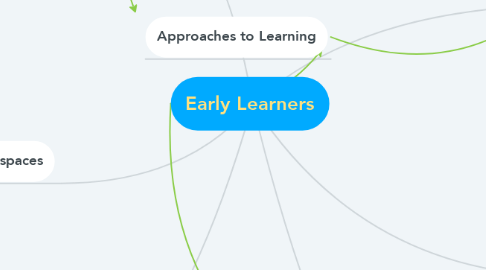Early Learners
by Mida Abdul

1. IBE Scholol Visit and PD
1.1. Most of the evidence we are looking for will come in slightly different forms. In terms of analysing the school against the PSP will need to include close observations of the surroundings as well as the learning both indoors and outdoors. This may be a bit different than when we are visiting priimary. Many online tools used to capture the process of learning, dialogue between kids and with teachers add value to the analysis.
1.2. PD: IBE will need to collect samples from practitioners to show practical translation of the philosophy - to classroom.
2. Learning spaces
2.1. a requirement to demonstrate a commitment to create learning spaces and environment that meets the needs of all students.
2.2. arranging and rearranging materials as invitations for learning
2.3. creating areas for role play, block play, mark-making, expression through the arts, encouraging and inviting all students to express their understanding using symbolic language(s).
2.4. involving students in the design and construction of play areas
2.5. creating displays that reflect the process of students learning
3. Symbolic exploration and expression
3.1. Symbolic language is encouraged and nurtured as a way for students to represent their understanding of mathematical and language concepts. They make connections of those symbols through experiential learning.
3.2. The development of understandings in language and mathematics are interwoven and intentionally explored through strategies such as: • games • rhymes, poems, stories • play • conversations • mark-making, drawing problem-solving, reasoning • counting, patterning and sequencing
4. Technology as a tool for inquiry - it is NOT about mastering the technology, it is more about using technology to extend students' exploration and thinking.
5. Approaches to Learning
6. Play
6.1. highly adaptive, promotes agency, the pursuit of personal interest.
6.2. supports the development of physical, emotional, social and cognitive domains
6.3. promotes the development of identity
6.4. uninterrupted play - will be demonstrated and evident through timetable
6.5. monitoring and documenting students’ learning and development during play, and offering appropriate scaffolds learning experiences for individual students and small groups.
7. Relationships
7.1. acknowledging and celebrate each student's individuality
7.2. regular conversations with parents and legal guardians
7.3. recognizing opportunities for students to learn to self-regulate during play and offer support and feedback when needed
7.4. planning uninterrupted time for play in engaging learning spaces
8. Assessment that monitors and documents students’ learning against individual developmental milestones and celebrates achievements at times that are pertinent to individuals, as well as valuing and recording the learning of the whole group.


